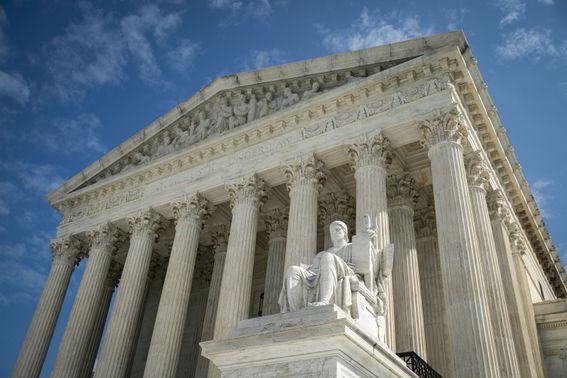Crypto exchange Coinbase won a reprieve from the U.S. Supreme Court on Friday, after the high court ruled that a lawsuit filed by one of the exchange’s users couldn’t proceed until Coinbase defends an appeal of a lower court ruling.
The ruling, which won a 5-4 majority, allows Coinbase to continue its effort to compel arbitration against the putative class action lawsuit, halting the lawsuit’s progress through the federal court system in the meantime. While this marks a win for Coinbase, it has little direct effect on the crypto industry.
“The sole question here is whether the district court must stay its pre-trial and trial proceedings while the interlocutory appeal is ongoing. The answer is yes: The district court must stay its proceedings,” wrote Justice Brett Kavanaugh on behalf of the majority.
Coinbase lost an initial ruling against the putative class action lawsuit, when the U.S. District Court for the Northern District of California denied its motion to compel arbitration. Coinbase lost an appeal of that ruling as well. The lawsuit was originally set to proceed on some of the case’s merits.
The Supreme Court ruling doesn’t touch on crypto issues beyond the fact that Coinbase is one of the two parties involved. However, it marks the first time a crypto company argued before the U.S. high court, and it may have implications on other lawsuits filed against the crypto exchange.
Coinbase can continue trying to compel arbitration after Friday’s ruling.
“We anticipate that the Ninth Circuit here, as we anticipate in [appeals] more generally, will proceed with appropriate expedition when considering Coinbase’s interlocutory appeal from the denial of the motion to compel arbitration,” the ruling said. “We reverse the judgment of the Court of Appeals and remand the case for further proceedings consistent with this opinion.”
Justice Ketanji Brown Jackson, who authored a dissent with support from Justices Elena Kagan and Sonia Sotomayor (and with Justice Clarence Thomas signing on to some sections), wrote that allowing the case to proceed would enable a balancing of all involved interests.
“The Court concludes for the first time that an interlocutory appeal about one matter (arbitrability) bars the district court from proceeding on another (the merits). That logic has such significant implications for federal litigation that the majority itself shies away from the Pandora’s box it may have opened,” Jackson wrote.
Edited by Jesse Hamilton.
